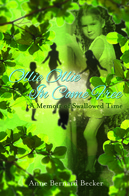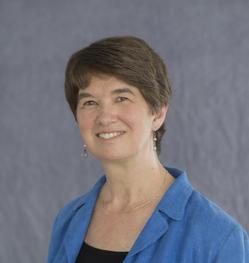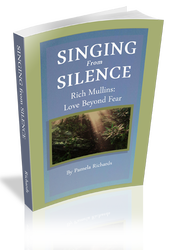
Pam: Anne, what's the spark that engendered your creative work, Ollie Ollie, In Come Free? Getting to the root of it, is there some incident in your life, some sine qua non "without which" your book would not have been written?
Anne: I had been in psychoanalysis for six years when I began to jot down the vignettes from my childhood that would later be formed into my memoir. What I had uncovered in psychoanalysis through those years was my frozen grief over my older brother and sisters' deaths when I was a small child, and how it impacted every aspect of my being. Now those experiences began to pour out of me in written form. I had immediate access to a flood of memories and feelings, and even to the narrative voice of the young girl I had once been. I shared my stories in a women's writing group where I felt warm, safe and received, and the effect was cathartic because it seemed, in fantasy, to fulfill my deepest lifetime yearning to be heard and understood by my family. In the family I had never been able to reveal my sadness, my longings, terror of death, shame or survivor guilt. I had often felt lonely and alienated, though I had never revealed these feelings because they would be dismissed and ridiculed.
After a few months this thought came to me: "If my mother and sisters can read these stories as they come directly from my guileless child self, unfiltered, fresh and raw like an eye-witness account, they will finally know how I have suffered. " The thought was deliciously consoling to me. It took twenty years for my book to come to fruition. During that time, right up through publication, my focus was on revealing my truth to my family, and thus giving my child self a voice for the first time. If I was to share the book with the public, as I also longed to do, it was in large part so others outside the family could bear witness and validate my experiences.
Without psychoanalysis, without Women Writing for (a) Change, I would have never been able to write such an intimate memoir. It took the juxtaposition of both experiences to give me both the insight and the courage to share my experiences in this way.
Pam: Anne, I grew up with a heavy set of expectations, following the loss of my siblings and several miscarriages my mother endured. I was a "last chance" baby, born when my mother was forty. As a result of sibling loss, I felt like the "miracle baby." I never felt I could live up to the expectations of others. Did you have a similar experience, and if so, how do you think it affected you?
Anne: This is a tough question to address. On the surface,I did not have a special place in the family that would have led to high expectations. In fact I was often told, growing up, that my arrival was traumatic for my mother because it occurred at the same time my oldest sister Mary-Louise started kindergarten. Suddenly the cozy little nest my mother treasured exploded with a fourth kid, a colicky one at that, while she had to turn her oldest over to alien authorities every morning. With my birth, she grieved her losses.
On the other hand I believe I did become a replacement child for Mary-Louise after she died. I was certainly not conscious of this while growing up, but my mother alluded to it decades later, and as I thought about it, it matched my experience. I had many of her personality traits, so the identification would have been easy. Also, my mother started a private school for me, and she did imply later that this felt like a way to love Mary-Louise, for whom she could do nothing. I was put up on a pedestal as time passed; I was always being told by adults how bright I was. Some of my sense of specialness may have been of my own making, as a defense against my loneliness -- I worked really hard at being super-good. I became a book-worm and a pianist. High expectations were so internalized, the need to shine so intense, that I have never experienced them as coming from outside of me. If it weren't for the remarks my mother made to me in 1990, it would never have occurred to me that there was any identification with my dead sister. Such things are so subliminal, so unconscious on everyone's part that they are hard to know for sure. Did I feel special, for one reason or another? Absolutely.
Pam, I am interested in how the bond between you and Richard might have grown out of your shared sense of specialness. You were both following the beat of a different drummer.
Pam: Richard knew he was a prodigy, certainly by the time we met. It's a specialness that can set someone apart from his peers. For instance, he devoted more time to playing classical piano growing up, and less to sports. So he was more isolated when he was young than most. When he had an audience, though, he could let his gift shine. He knew this even before junior high school, when he began accompanying a youth choir. As a performer, he was very natural. Socially, however, his experiences were limited as he developed his gift.
As for me, I don't remember a time when I couldn't read, so a lot was expected of me academically--even though my math skills lag far behind the verbal skills. Advanced reading was a skill my peers did not appreciate, so it wasn't easy making friends. I also had a difficult time at home, so I spent most of my childhood entranced in a book. I only started making friends when I was a senior in high school, learning everything I could about art, creating art, and creativity.
So when we both met as freshmen in 1974, Richard and I both lived in our inner worlds a lot. Richard's world of songwriting and mine of visual imagination gave both of us a point of intersection. Our relationship was so intense it was a downright scary, so our shared world of inner images acted perhaps as a buffer, allowing us to interact at a safe distance--yet at the same time forming a deep bond between us.
I'm no exception there--Richard seemed intent on bonding with virtually anyone and everyone he met. Many people relate to others in a variety of ways: through competition, through teaching/learning, through varying patterns of courting relationships. Richard seemed especially adapted to creating a bond by mirroring the person he was with.
Here's a link to an NPR podcast someone recently shared with me about quantum entanglement applied to human interactions. The type of empathy they're talking about is extreme, but I can catch a glimpse of Richard in it.
http://www.npr.org/2015/01/30/382453493/mirror-touch
By the time Richard went on to a career as a performer, he had enough ability to guide the emotional experiences of his audience that he could readily face a crowd without fear of being overwhelmed.
To be continued. . .


 RSS Feed
RSS Feed
